-
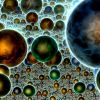 +38 +1
+38 +1Many physicists assume we must live in a multiverse – but their basic maths may be wrong
The universe appears to be fine-tuned for life to evolve.
-
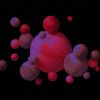 +15 +1
+15 +1Why More Physicists Are Starting to Think Space and Time Are ‘Illusions’
A concept called “quantum entanglement” suggests the fabric of the universe is more interconnected than we think. And it also suggests we have the wrong idea about reality.
-
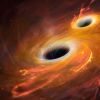 +19 +1
+19 +1What 50 gravitational-wave events reveal about the Universe
Astronomers observed 39 cosmic events that released gravitational waves over a 6-month period in 2019 — a rate of more than one per week. The bounty, described in a series of papers published on 28 October, demonstrates how observatories that detect these ripples — usually created by the merging of two black holes — have dramatically increased their sensitivity since the first identification was made in 2015.
-
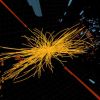 +13 +1
+13 +1New boson appears in nuclear decay, breaks standard model
Weird electron-positrons from decaying beryllium and helium hint at new boson.
-
 +13 +1
+13 +1What gravitational waves can say about dark matter
In 1916, Albert Einstein published his theory of general relativity, which established the modern view of gravity as a warping of the fabric of spacetime. The theory predicted that objects that interact with gravity could disturb that fabric, sending ripples across it. Any object that interacts with gravity can create gravitational waves. But only the most catastrophic cosmic events make gravitational waves powerful enough for us to detect.
-
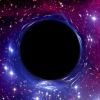 +36 +1
+36 +1Why Don't Black Holes Swallow All of Space? This Explanation Is Blowing Our Tiny Minds
Black holes are great at sucking up matter. So great, in fact, that not even light can escape their grasp (hence the name).
-
 +17 +1
+17 +1A Major Physics Experiment Just Detected A Particle That Shouldn't Exist
Scientists have produced the firmest evidence yet of so-called sterile neutrinos, mysterious particles that pass through matter without interacting with it at all. The first hints these elusive particles turned up decades ago. But after years of dedicated searches, scientists have been unable to find any other evidence for them, with many experiments contradicting those old results.
-
 +15 +1
+15 +1The illusion of time
Andrew Jaffe probes Carlo Rovelli’s study arguing that physics deconstructs our sense of time.
-
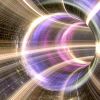 +22 +1
+22 +1There's a Type of Black Hole That Erases Your Past And Messes With Your Future
Hello darkness my old friend. By Mike McRae.
-
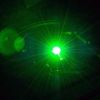 +16 +1
+16 +1Laser-driven technique for creating fusion is now within reach, say researchers
A laser-driven technique for creating fusion that dispenses with the need for radioactive fuel elements and leaves no toxic radioactive waste is now within reach, say researchers.
-
 +13 +1
+13 +1Actually, There Is a Time Like the Present
Think there’s no time like the present? Modern physics begs to differ. By Mark Shumelda.
-
 +20 +1
+20 +1‘Arrow of time’ reversed in quantum experiment
In quantum systems, heat can flow “backward,” from cold to hot. By Emily Conover.
-
 +30 +1
+30 +1Measurements from CERN suggest the possibility of a new physics
We're about to lift the veil to a new universe. By Brad Bergan.
-
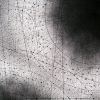 +12 +1
+12 +1How Fuzzballs Solve the Black Hole Firewall Paradox
By replacing black holes with fuzzballs — dense, star-like objects from string theory — researchers think they can avoid some knotty paradoxes at the edge of physics. By Jennifer Ouellette.
-
 +19 +1
+19 +1The Atomic Theory of Origami
By reimagining the kinks and folds of origami as atoms in a lattice, researchers are uncovering strange behavior hiding in simple structures. By Marcus Woo.
-
 +22 +1
+22 +1Zombies Must Be Dualists
What the existence of zombies would do to our philosophy of mind. By Sean Carroll.
-
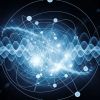 +17 +1
+17 +1Minuscule jitters may hint at quantum collapse mechanism
Vibrations of a tiny cantilever could help reveal why quantum rules fail on large scales. By Emily Conover.
-
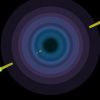 +12 +1
+12 +1First-Ever Evidence of Strange Bouncing Light Particles Has Been Caught in The LHC
Light is pretty awesome. It's made of subatomic particles called photons, which also behave like waves. It's been demonstrated to act like both a particle and a wave simultaneously . Photons can be entangled at a distance . They reflect, refract...
-
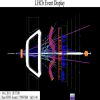 +1 +1
+1 +1Lawbreaking Particles May Point to a Previously Unknown Force in the Universe
Scientists aren’t yet certain that electrons and their relatives are violating the Standard Model of particle physics, but the evidence is mounting. By Jesse Dunietz.
-
 +23 +1
+23 +1It’s Possible to Keep Schrodinger’s Cat Alive Without Ever Opening The Box
Just keep shaking it. Researchers have used an artificial atom to show it’s possible to keep Schrödinger’s cat alive indefinitely, but also accelerate its demise, all without needing to look inside its box. By Mike McRae. (June 19, 2017)
Submit a link
Start a discussion




















